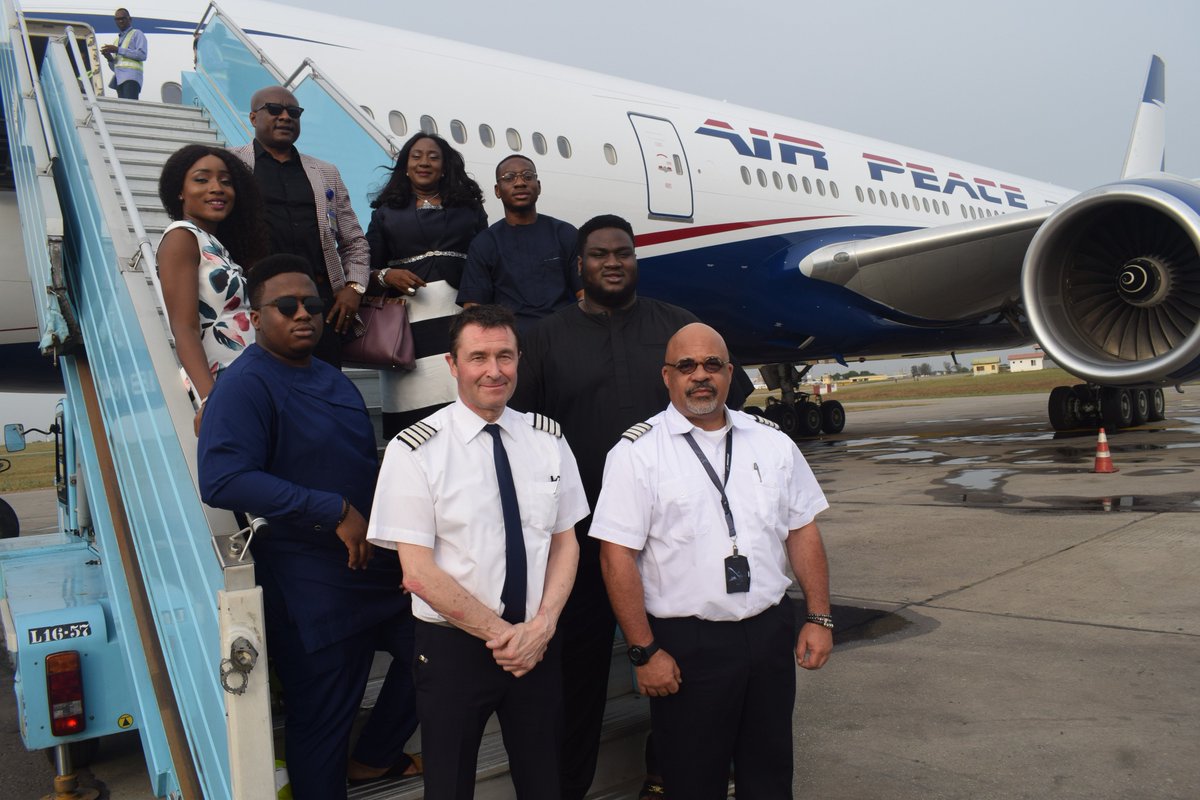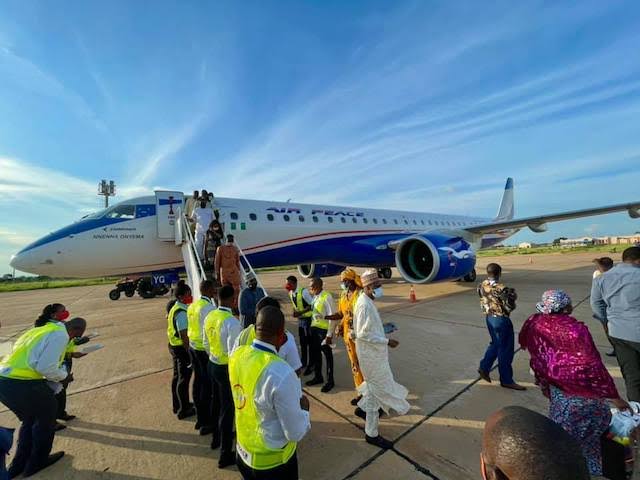Aviation
Airpeace sets record with Israel flight

By OBINNA EZUGWU
In late January, West Africa’s largest airline, Air Peace, announced plan to begin flights to Tel Aviv, Israel as part of its international routes expansion drive. The announcement had come after the federal government designated the airline to operate flight services to the Middle East nation.
Chief Allen Onyema, the airline’s executive chairman who disclosed the development had noted that the designation would help Nigeria to benefit from a Bilateral Air Services Agreement of several decades, even as he said the airline had been given the right to fly to Mumbai, India, adding that the service was to commence by March.
“We will start the Mumbai route by March 2020. And later in the year, we will commence direct flight to Tel Aviv in Israel. We have been given the right to fly to Tel Aviv. After many years of bilateral relations, Nigeria has not been able to have direct flights to Israel,” he had said.
“The Minister of Aviation, Hadi Sirika has been addressing the proliferation of foreign airlines into Nigeria, especially multiple destinations. A lot of foreign airlines have been applying for multiple designations but the government is trying to address it since it puts local airlines in great disadvantage especially as we don’t have similar or reciprocal designations in those countries.
“Airline business does not make anyone richer but considering the number of employment opportunities it generates, we need to begin to promote support for our indigenous carriers and other businesses,” he said.
The outbreak of Coronavirus pandemic currently ravaging the world has since put spanner in the works, forcing Air Peace and other airlines across the globe to stop all commercial flight operations as part of efforts to contain the spread, even as nations continue to bar flights from entering their shores.
But the awaited dream of starting flight operations to Israel in March did materialise on March 29 in the midst of the Coronavirus adversity when Air Peace evacuated over 200 Israelis from Nigeria to the city of Tel Aviv, becoming the first Nigerian airline to operate a direct flight to the Middle East nation in over 60 years.
It is another feather added to the cap of an airline that has set industry standards in Nigeria, and has continued to defy the odds as it is being positioned to take on the world, led by its calm and soft spoken CEO, Onyema
Few months ago, the airline secured a third International Air Transport Association (IATA) Operational Safety Audit (IOSA) certificate – an internationally recognised and accepted evaluation system designed to assess the operational management and control systems of an airline.
Leading a successful airline that has well positioned itself to take on the world in an environment where many had failed, Onyema has proved that with determination, one can succeed even where the government with limitless resources failed. The driving force, he says, is focus, setting out your plans and following it through.
“When we started this airline we outlined our growth pattern and we have religiously followed it.”
Onyema has walked his talk, efficiently running the odd-defying airline that now embodies the largest black nation’s aspirations; it’s a response to Ethiopian Air, Emirates, British Airways and the likes – there are already suggestions that the airline should be adopted as a national carrier, to bridge the country’s missing gap in the industry.
Nigeria had signed up to the Bilateral Air Services Agreement (BASA) and the Open Skies Agreement which allows reciprocal, unrestricted access to airports in each participating country in a bid to ease passengers’ stress of connecting flights.
The agreement has enabled such airlines as Ethiopian, Emirates, British Airways, Air France, Ethihad and the likes to access virtually all of the country’s airports, putting local and usually smaller airlines at a disadvantage. Yet, because the country has no airline of international repute to enjoy same privileges elsewhere, the agreement has only worked to its disadvantage.
It is estimated that the country’s airline operators are incurring an annual loss of about N700 million on account of the agreement. It is this gap that Air Peace is primed to fill. It has emerged the only airline in the country, besides the defunct Nigerian Airways, to operate for six years without having a major incident; has built positive reputation globally and is well primed to step into the gap with necessary government support.
On June 5 last year, Air Peace began flights to Dubai, United Arab Emirates, becoming the country’s flagship carrier to the Arab nation. And according to Onyema, it is only the first of many steps.
“We already started our international operations into Sharjah and into UAE,” he had said. “And we are not just doing Lagos-Sharjah alone; we are also doing every destination in Nigeria to Sharjah and Dubai. We have an agreement with SATA, the people in charge of Air Arabia and some other airlines.”
For an airline that began operations seven years ago, in 2013, Air Peace has been a bit of a marvel; a testament to the Nigerian possibility.
In April last year Onyema sealed a deal for 30 brand new Embraer 195-E2 aircraft with an order for initial supply of 10 aircraft. The deal is worth $2.1 billion, a massive investment by any standard. There have been a few additions since then. Earlier in September 2018, the company had placed an order for 10 Boeing 737 Max 8, which has been delayed on account of the brand’s technical challenges – an offshoot of the Ethiopian and Malaysia air misfortunes.
With over 25 planes already in its fleet, Air Peace has since conquered the country’s air space, emerging its largest. With the new orders, Onyema aims to take on the world.








